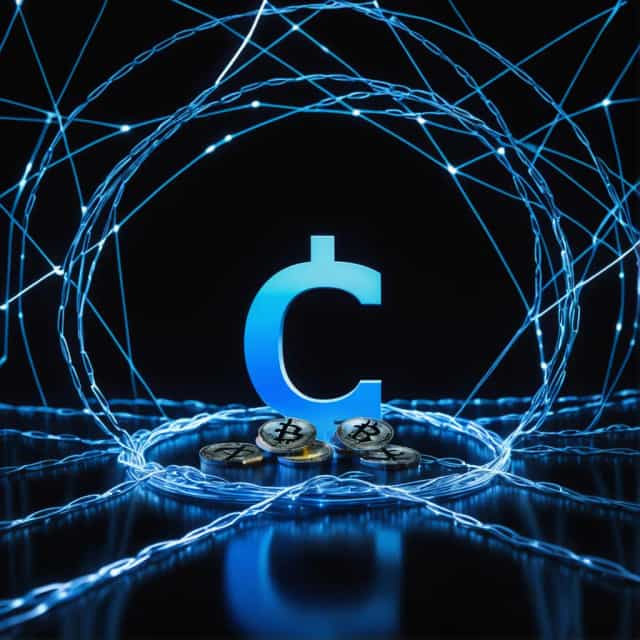
Image source: Block Media
The Future of Web3 AI: Decentralization, Trust, and Human-Driven Intelligence
Web3 AI innovators are shaping the conversation around artificial intelligence’s decentralized future. On October 11, leading projects Sapien, Immutable AI, Public AI, and Heurist AI convened for a Twitter Space discussion titled “Real People, Real Rewards.” The dialogue explored the critical challenges and transformative opportunities in advancing AI technologies, anchored in decentralization and public collaboration.
The Transformative Power of Human-in-the-Loop AI
One of the key highlights was the growing importance of Human-in-the-Loop (HITL) systems. These revolutionary frameworks integrate human oversight to fine-tune AI outputs, ensuring greater accuracy and reliability.
Ben from Sapien remarked, “Early large language models (LLMs) often faltered due to minimal human supervision in data curation and decision-making processes. By embedding human intervention for refining data and monitoring outputs, we’ve significantly reduced AI ‘hallucinations’ while boosting overall credibility.”
The shift to HITL is proving to be a pivotal step in transforming AI technologies from theoretical constructs into practical, highly reliable tools.
DeepSeek and the Case for High-Quality Data
The panelists also spotlighted DeepSeek, a model that underscores the unparalleled value of accurate, human-verified datasets over sheer volume. Immutable AI explained, “Instead of pulling data indiscriminately from the internet, which compromises its integrity, DeepSeek relies exclusively on high-quality, human-reviewed datasets. This approach not only enhances model performance but slashes operational costs to under one-eighth of the industry standard.”
Jordan from Public AI added, “DeepSeek’s groundbreaking efficiency is a testament to the collective power of decentralized contributors like Abacus AI. The decentralized data marketplace, driven by ‘co-opetition’—or collaborative competition—has been vital in achieving these advancements.”
Decentralization: The Foundation for Trust and Sustainability
Decentralization emerged as a cornerstone for building a trustworthy and equitable AI ecosystem. During the discussion, the panelists underscored three key pillars enabled by decentralization:
1. Restoring Public Trust
Public AI highlighted the damage caused by Big Tech’s monopolization of user data during the Web2 era. “The lack of transparency and ownership eroded trust,” they explained. “With blockchain, we can empower individuals to regain control of their data and incentivize participation through tokenized rewards. This fosters a sense of ownership and accountability that traditional models lack.”
2. Sustainable Incentive Models
The need for economically viable reward systems was another focal point. Speculative tokenomics, disconnected from operational reality, are no longer sufficient. Public AI showcased its client revenue-backed token buyback program as a sustainable alternative. Similarly, Heurist AI outlined how its model generates real revenues through transaction fees via on-chain interactions between AI agents.
3. Fair Value Distribution
Immutable AI emphasized the ethical imperative of decentralizing the economic benefits generated by AI. “The wealth created by AI’s capabilities should not concentrate in a handful of corporations. Instead, it must reach individuals whose data and computing power enable these systems. Decentralization is our path to equitable value sharing.”
An Emerging AI Agent Economy
As decentralization redefines AI’s operational landscape, Heurist AI shared a forward-looking vision of an autonomous AI agent-driven economy. Kevin from Heurist AI revealed, “On our testnet, thousands of interconnected AI agents are already negotiating, providing services, and compensating each other on-chain without any human intervention. This represents a breakthrough where AI can independently generate and manage value, laying the groundwork for an unprecedented economic paradigm.”
The Road Ahead for AI
The panel reached consensus on two critical prerequisites for AI’s future success:
- Establishing faultless trust through decentralized solutions.
- Ensuring everyone who contributes high-quality data—whether individuals or decentralized networks—is rewarded fairly.
They emphasized that AI’s evolution will require not only advanced technologies but an ethical framework that prioritizes transparency, equity, and collaboration.
For ongoing coverage of innovations in AI, follow Block Media on Telegram.










